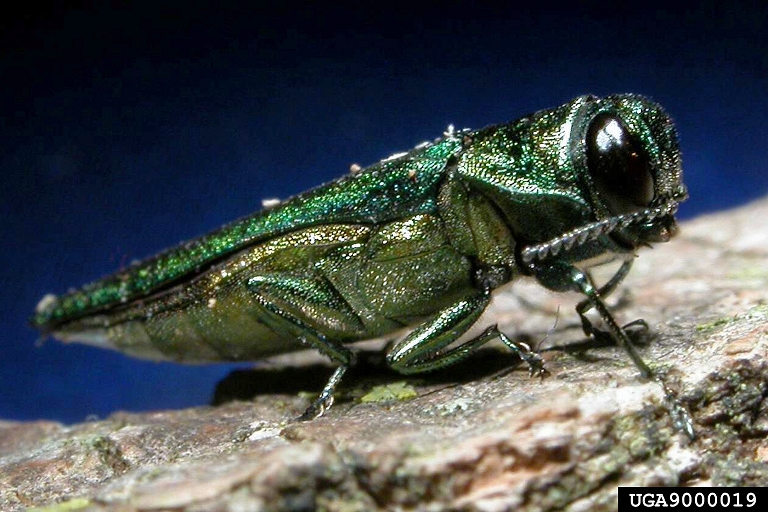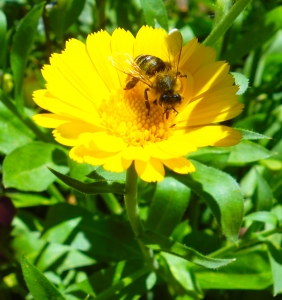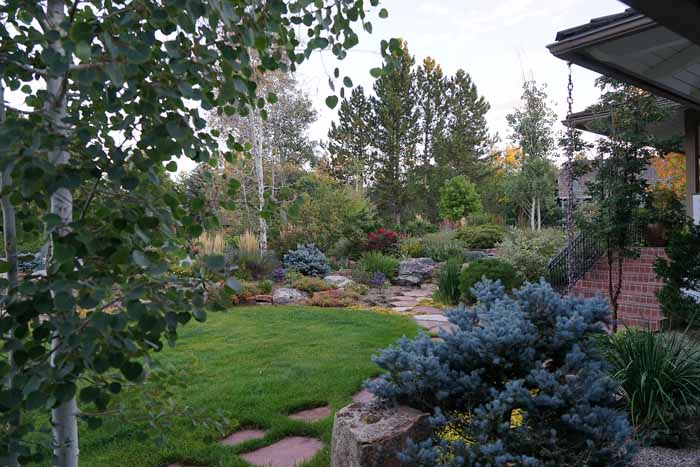|
|
|
Friday, June 05, 2015 10:58 AM |
|
On June 5, 2015, USCIS will reopen the congressionally mandated fiscal year (FY) 2015 cap and will accept Form I-129, Petition for a Nonimmigrant Worker, requesting new H-2B workers with an employment start date between April 1 and September 30, 2015.
|
|
Read more...
|
|
Friday, May 29, 2015 10:58 AM |
|
BREAKING NEWS: Call for advocacy efforts
National Association of Landscape Professionals (NALP), of which ALCC is a member, issued the following legislative alert in response to the recently released Clean Water Act Rule:
|
|
Read more...
|
|
Thursday, May 28, 2015 10:58 AM |
|
 Clean Water Rule finalized Clean Water Rule finalized
Today the U.S. Environmental Protection Agency and the U.S. Army finalized the Clean Water Act Rule "to clearly protect from pollution and degradation the streams and wetlands that form the foundation of the nation’s water resources." The rule will be in effect 60 days after publication in the Federal Register.
|
|
Read more...
|
|
News
|
|
Written by Lisa Schaumann
|
|
Tuesday, May 26, 2015 09:11 PM |
|
Even in the age of the smartphone and T.V. show binge watching, the love affair with the American yard is not over. According to an online survey commissioned by the National Association of Landscape Professionals and conducted by Harris Poll in May 2015, Americans think it is important to have a yard, keep it looking well-maintained and live in an area with nice landscaping.
The study, conducted among 2,034 U.S. adults (ages 18+), finds that three quarters of Americans (75%) feel that it is important to spend time outside in their yards. Despite the perception that the younger generation is only focused on a high-tech lifestyle, nearly three quarters (74%) of Millennials (18–34 year olds) think spending time outside in their yards is important.
|
|
Read more...
|
|
News
|
|
Tuesday, May 26, 2015 08:00 PM |
|
 Your company spends time, effort, and money to attract new clients to your business. Increasing your customer base is often a priority. But are you remembering to take care of the customers already in your portfolio? Your company spends time, effort, and money to attract new clients to your business. Increasing your customer base is often a priority. But are you remembering to take care of the customers already in your portfolio?
It’s easier to keep a current client than it is to recruit a new one. We’ve all been asked at the check-out stand, “Do you need socks to go with those pants you’re buying?” or “Would you like fries with that?” Increasing business with your current customers can be a great way to grow your company.
According to The Chartered Institute of Marketing, it’s cheaper, too. Estimates vary, but acquiring a new customer can often cost more than four times the cost of customer retention (some estimates can be as high as 10 times).
|
|
Read more...
|
|
News
|
|
Tuesday, May 26, 2015 05:05 PM |
|
 Last week, residents of several Front Range communities noticed trees in high-traffic public parks or along street rights-of-way encircled with wide bands of green or yellow ribbon that warn of an invasive tree pest. Last week, residents of several Front Range communities noticed trees in high-traffic public parks or along street rights-of-way encircled with wide bands of green or yellow ribbon that warn of an invasive tree pest.
City parks departments, Colorado Tree Coalition volunteers and others marked more than 450 trees, all of which are ash, to offer a visual example of a mere fraction of the millions of trees in Colorado that could be lost to the invasive, tree-killing emerald ash borer (EAB).
|
|
Read more...
|
|
Tuesday, May 26, 2015 04:58 PM |
|
 On May 19, the White House Pollinator Health Task Force released its "National Strategy to Promote the Health of Honeybees & other Pollinators." You can download or read the entire report here. On May 19, the White House Pollinator Health Task Force released its "National Strategy to Promote the Health of Honeybees & other Pollinators." You can download or read the entire report here.
The strategy focuses on "three overarching goals:"
- Reduce honey bee colony losses to economically sustainable levels;
- Increase monarch butterfly numbers to protect the annual migration; and
- Restore or enhance millions of acres of land for pollinators through combined public and private action.
|
|
Read more...
|
|
News
|
|
Tuesday, May 26, 2015 04:48 PM |
|
 A 2015 Harris Poll of more than 2,000 US adults found that having a yard with trees, shrubs, and other plants is important to their quality of life. They also believe that a landscape professional would improve the value of their yard. Learn more in an infographic from the National Association of Landscape Professionals (NALP, formerly PLANET). A 2015 Harris Poll of more than 2,000 US adults found that having a yard with trees, shrubs, and other plants is important to their quality of life. They also believe that a landscape professional would improve the value of their yard. Learn more in an infographic from the National Association of Landscape Professionals (NALP, formerly PLANET).
|
|
Read more...
|
|
News
|
|
Tuesday, May 26, 2015 10:49 AM |
|
 Associated Landscape Contractors of Colorado (ALCC) has launched a new blog. The mission of the new Legislation and Advocacy Blog, nicknamed the LAB, is to be a trustworthy source of information and breaking news for members and their customers who wish to keep up-to-date on legislation, regulations, and advocacy efforts that relate to the green industry. Associated Landscape Contractors of Colorado (ALCC) has launched a new blog. The mission of the new Legislation and Advocacy Blog, nicknamed the LAB, is to be a trustworthy source of information and breaking news for members and their customers who wish to keep up-to-date on legislation, regulations, and advocacy efforts that relate to the green industry.
|
|
Read more...
|
|
|
Wednesday, May 20, 2015 04:58 PM |
|
 Welcome to the ALCC LAB, our new Legislation & Advocacy Blog. Here you'll find weekly posts--updated every Tuesday--about legislative issues and regulations that affect the landscape industry. It will also be the place to find breaking news about changes to legislation. Welcome to the ALCC LAB, our new Legislation & Advocacy Blog. Here you'll find weekly posts--updated every Tuesday--about legislative issues and regulations that affect the landscape industry. It will also be the place to find breaking news about changes to legislation.
- What exactly is WOTUS (Waters of the US) and how can it affect your landscape business?
- How do I figure out which of my seasonal workers are eligible for health care?
- Where do I find out who my legislators are?
- Why should I volunteer with ALCC's advocacy efforts?
These are just a few of the questions we'll try to answer.
Visit this page to find out the latest on the H-2B visa program and related rulings. Learn about NALP's Legislative Day on the Hill and how you can get involved. And see what fellow ALCC members are doing to influence government and support the success of your business.
We look forward to this new venue to share our efforts and help more members get involved. If you have suggestions or feedback about what you'd like to read in the LAB, please contact us at [email protected]. |
|
Wednesday, May 20, 2015 04:58 PM |
 The H-2B rules promised by end of month are available at the following links. They become effective today. The H-2B rules promised by end of month are available at the following links. They become effective today.
Comprehensive IFR: https://www.federalregister.gov/articles/2015/04/29/2015-09694/temporary-non-agricultural-employment-of-h-2b-aliens-in-the-united-states
Wage Final Rule: https://www.federalregister.gov/articles/2015/04/29/2015-09692/wage-methodology-for-the-temporary-non-agricultural-employment-h-2b-program
So far, Senator Bennet has asked for comments on how these rules will affect member businesses. If you respond to him, please also email that response to your House Representative and to Senator Gardner. They need to continue to hear from us.
|
|
Read more...
|
|
Wednesday, May 20, 2015 04:58 PM |
|
 What's a WOTUS? What's a WOTUS?
In June 2014, the US Environmental Protection Agency (EPA), in partnership with the US Army Corps of Engineers, released a proposed rule (known as Waters of the United States, or WOTUS) in order to, in their words, "clarify protection under the Clean Water Act for streams and wetlands that form the foundation of the nation’s water resources." The rule describe which waters can be federally regulated under the Clean Water Act.
Why should the landscape industry care about the WOTUS rule?
|
|
Read more...
|
|
|
|
|
<< first < Prev 101 102 103 104 105 106 107 108 109 110 Next > last >>
|
|
Page 105 of 111 |